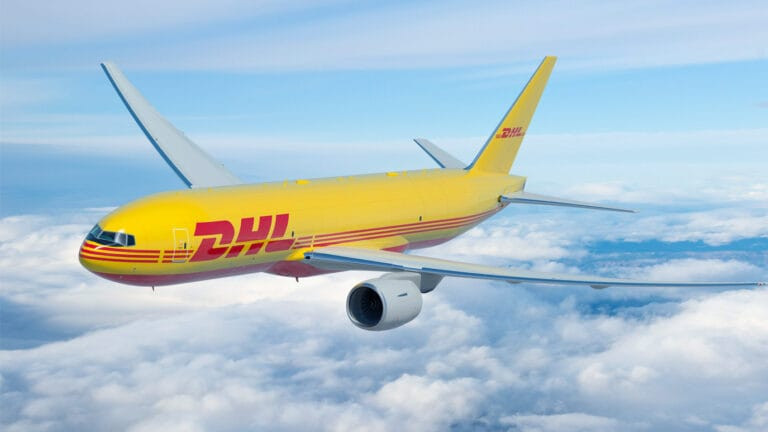As the demand for efficient airfreight solutions rises, logistics companies are under increasing pressure to adapt. Economic volatility, supply chain disruptions, and the need for sustainable practices are driving the industry to innovate and find new ways to deliver goods efficiently across borders. To handle the increasing volumes of airfreight, DHL has turned to advanced technologies.
“We’ve optimised our airfreight operations across the Americas by implementing CargoWise. This has allowed us to handle increasing volumes without sacrificing efficiency. The system enhances productivity, helps us better manage capacity, and ensures we can remain agile even as demand grows. It’s been instrumental in delivering the high-quality service our customers expect,” Andreas Von Pohl, Head of Airfreight for DHL Global Forwarding Americas, said.
The economic turbulence and supply chain disruptions of recent years have posed significant challenges for the air cargo sector. Von Pohl detailed how DHL has adapted its operations to mitigate these effects and provide stability for its customers.
“The key to navigating economic volatility and supply chain disruptions is creating predictability for our customers. We’ve deployed dedicated flight operations from regions like APAC, where congestion often disrupts the flow of goods. By doing this, we maintain capacity and keep cargo moving despite external challenges. Our customers need consistency, and that’s what we aim to deliver, even in volatile market conditions,” Von Pohl emphasised.
DHL offers businesses flexible solutions by combining various modes of transport, allowing for cost-efficiency without sacrificing speed. This multimodal approach has been particularly beneficial in the Latin American market, where businesses need alternatives to traditional airfreight.
“We continuously evaluate the options available to ensure we’re offering the best solutions. Our Sea/Air and MMX services into Latin America are examples of how we provide flexibility. Businesses want fast, cost-effective solutions, and these services allow them to balance the need for speed with the necessity of cost management. It’s not about offering one product but tailoring solutions that meet each customer’s unique needs,” Von Pohl stated.
The strength of DHL’s global network allows the company to seamlessly integrate its regional airfreight operations with its global logistics services. This integration helps DHL optimise routes and manage capacity effectively.
“Our global network is one of our greatest strengths. It enables us to optimise freight routes and adjust capacity depending on regional demands. Whether through dedicated flights or multimodal services, we ensure that our customers in the Americas get the same level of efficiency and speed as our global clients. The ability to leverage our entire network gives us a significant advantage,” Von Pohl explained.
Investing in the future
DHL has made significant investments in infrastructure and fleet enhancements to meet future airfreight demands. The company’s commitment to expanding its capabilities is evident in recent projects like the US$192 million investment at Cincinnati/Northern Kentucky International Airport and the introduction of temperature-controlled warehouses.
“We’re constantly investing in our infrastructure to ensure we’re prepared for future growth. Our US$192 million investment in a new hangar at Cincinnati is just one example. We’ve also invested in product-specific warehouses for temperature-controlled cargo in the U.S. and Costa Rica, which are crucial for handling sensitive shipments like pharmaceuticals.”
“Additionally, we’ve phased the deployment of eight new Boeing 777Fs to increase capacity during peak seasons,” Von Pohl shared.
DHL is a leader in sustainability within the logistics industry, particularly in its use of Sustainable Aviation Fuel (SAF).
“Sustainability is at the heart of what we do. We’ve been at the forefront of adopting Sustainable Aviation Fuel (SAF), and our goal is to have SAF integrated into every transaction. By 2030, we aim to have at least 30 percent of our aviation fuel mix come from SAF. This is about more than business; it’s about doing the right thing for the planet. We’re working with leading SAF producers and our customers to make this a reality,” he said.
DHL’s extensive network across the Americas requires efficient customs clearance processes and strict regulatory compliance to ensure seamless operations. Von Pohl spoke about how DHL manages this complex aspect of international shipping.
“Customs clearance is a critical part of the door-to-door service we offer. We work very closely with countries across the region to ensure our processes are streamlined. Our customs brokerage is integrated with our operations, which helps shipments move across borders smoothly. Regulatory compliance is essential, and our teams are continuously improving to maintain this level of efficiency,” Von Pohl explained.
Partnerships with major hubs across the Americas are key to ensuring the smooth flow of cargo. DHL works with airports, ground handling agents (GHA), and carriers to improve efficiency and reduce costs.
“Airports are key partners in our operations. We collaborate with major hubs across the Americas to improve timeliness and reduce costs for our customers. By working closely with airports and ground handling agents, we ensure that cargo is processed efficiently, from arrival to departure,” Von Pohl concluded


